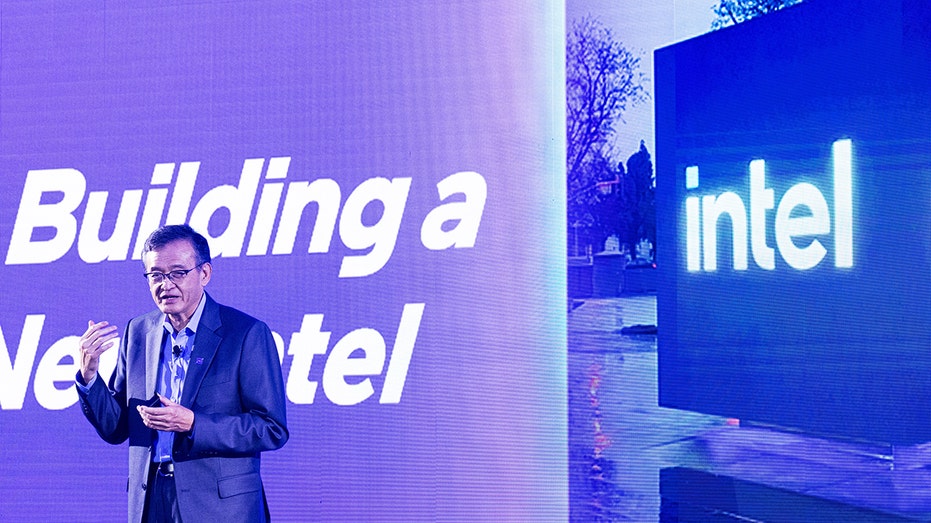At a White House event, President Trump and NVIDIA CEO Jensen Huang announced plans to manufacture AI superchips in the U.S., part of a sweeping $500 billion investment aimed at securing American tech dominance.
President Donald Trump called on Intel CEO Lip-Bu Tan to step down immediately on Thursday after Senate Republicans raised concerns over his links to Chinese companies and a criminal case involving his former company.
“The CEO of INTEL is highly CONFLICTED and must resign, immediately. There is no other solution to this problem. Thank you for your attention to this problem!” Trump posted on Truth Social.
His post came shortly after U.S. Republican Senator Tom Cotton sent a letter to the company’s board chair to “express concern about the security and integrity of Intel’s operations and its potential impact on U.S. national security.”
In the letter, first reported by Reuters, the senator asked a number of questions, including whether the company’s board was aware of the subpoenas sent to Cadence Design Systems when Tan was CEO before Intel hired him and what measures were taken to address those concerns.
INTEL’S NEW CEO TASKED WITH TURNING AROUND CHIP GIANT
Lip-Bu Tan, chief executive officer of Intel Corp., during a news conference on the sidelines of the Computex conference in Taipei, Taiwan, on Monday, May 19, 2025. (Annabelle Chih/Bloomberg via Getty Images / Getty Images)
Cotton also raised questions about whether Intel’s board had required Tan to divest from chip firms in China linked to the Chinese military or Communist Party, and whether Tan had disclosed other ties to Chinese companies due to Intel’s involvement in the Secure Enclave program, which aims to boost the domestic supply of advanced semiconductors for national security purposes.
A month after Tan was tapped to lead the company, Reuters reported that Tan had, either directly or through venture funds he has founded or operates, invested in hundreds of Chinese companies, some of which had links to the Chinese military. He also invested hundreds of millions in Chinese advanced manufacturing and chip firms between March 2012 and December 2024, Reuters reported. A source told Reuters in April that Tan had divested from his positions, though the extent of his divestitures wasn’t verified at the time.

Lip-Bu Tan, chief executive officer of Intel Corp., during a news conference on the sidelines of the Computex conference in Taipei, Taiwan, on Monday, May 19, 2025. (Annabelle Chih/Bloomberg via Getty Images / Getty Images)
INTEL CEO PAT GELSINGER RETIRES AS CHIPMAKER STRUGGLES
FOX Business reached out to Intel for comment.
Intel told Reuters the company and its chief executive are “deeply committed to the national security of the United States and the integrity of our role in the U.S. defense ecosystem.” Intel said it would address the questions raised directly with the senator.
| Ticker | Security | Last | Change | Change % |
|---|---|---|---|---|
| INTC | INTEL CORP. | 19.82 | -0.58 | -2.87% |
Tan was appointed CEO of Intel in March, succeeding interim co-CEOs David Zinsner and Michelle Johnston Holthaus, following the abrupt departure of the previous chief executive in December amid the company’s ongoing turnaround efforts.
Tan, described by Intel as “an accomplished technology leader with deep semiconductor industry experience,” also rejoined the company’s board of directors.
GET FOX BUSINESS ON THE GO BY CLICKING HERE

Intel CEO Lip-Bu Tan (Businesswire/Intel)
He formerly served as CEO of Cadence Design Systems from 2009 to 2021, where he was credited with leading an reinvention of the company and driving a “cultural transformation centered on customer-centric innovation,” according to Intel.
During his time at Cadence, the company more than doubled its revenue, expanded operating margins and delivered a stock price appreciation of more than 3,200%. Tan also served as a member of its board of directors for nearly two decades.
However, he was asked to lead one of the world’s largest semiconductor chip manufacturers while it faces a bout of challenges in the highly competitive sector.
Intel’s former CEO Pat Gelsinger stepped down in December 2024 before the company completed a four-year turnaround plan to gain an edge over rivals Nvidia and Taiwan Semiconductor Manufacturing Co.